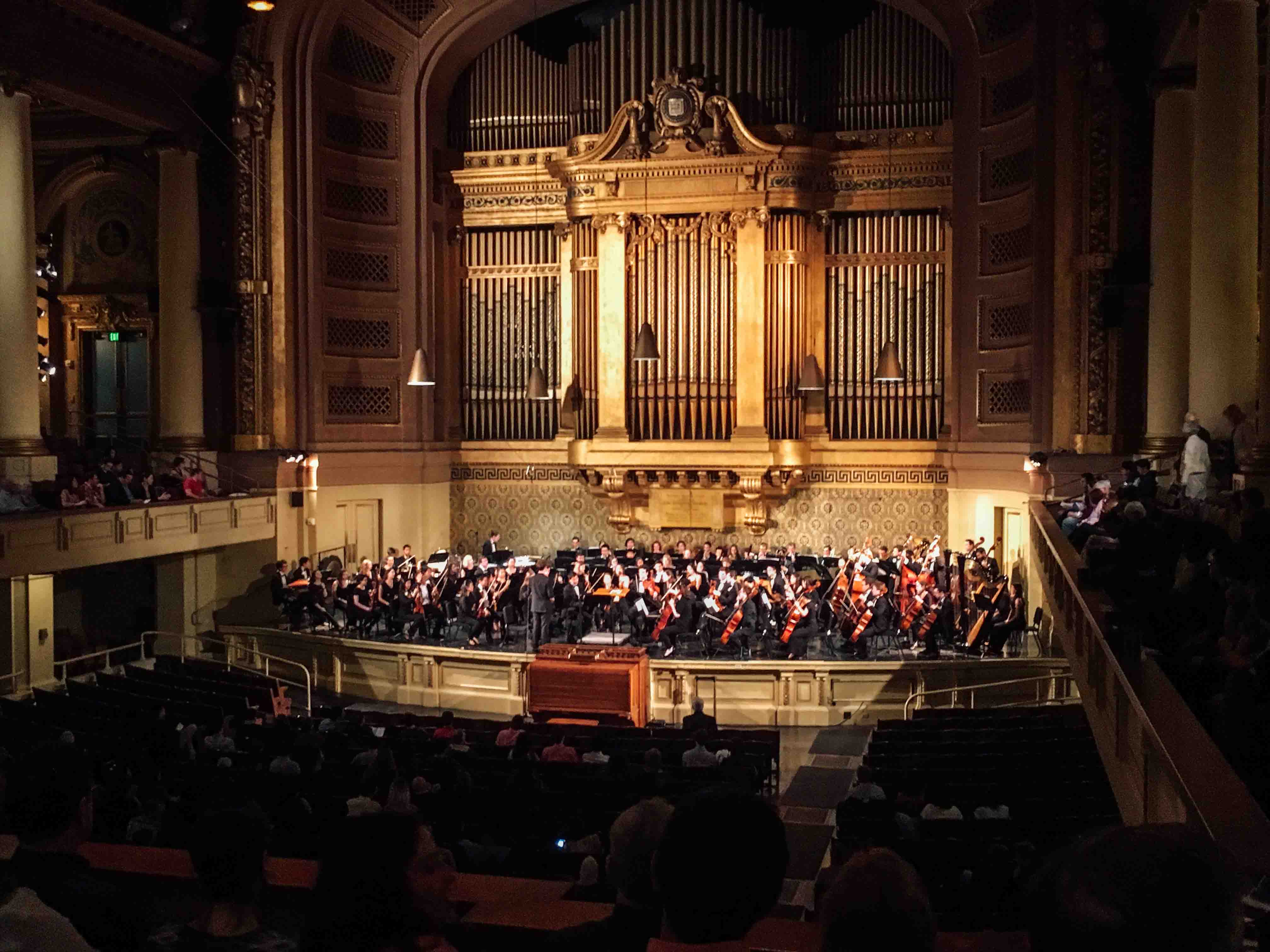
Lorenzo Arvanitis
This Saturday at 8 p.m., interim conductor William Boughton will lead the Yale Symphony Orchestra in the final performance of the ensemble’s 2018–19 concert season.
The program, titled “Other Hearts in Other Lands,” comprises various works by 19th century Finnish composer Jean Sibelius and the contemporary “Cyber Bird Concerto” for saxophone and orchestra by Takashi Yoshimatsu. The Yoshimatsu solo will be performed by Nick DeWalt ’21, a winner of last year’s William Waite Concerto Competition. The concert serves as a tribute to longtime faculty member and Chair of the Department of Music James Hepokoski, who will retire from his position as the Henry L. and Lucy G. Moses Professor of Music at the conclusion of this semester.
“Jim is one of the world’s leading experts on Sibelius,” said Boughton. “When I first came to New Haven for my audition with the [New Haven Symphony Orchestra] in 2006, and when I knew I was coming here to Yale, I made a beeline for [Hepokoski’s] front door to tap his brain and talk about Sibelius, because Sibelius is one of my great loves as well.”
The evening will open with Sibelius’ nationalistic piece “Finlandia,” which was completed in 1900. During the composition of this piece, Finland was under Russian rule, so the work can be understood as a covert protest that evokes the struggle of the Finnish people. In order to avoid Russian censorship for this piece’s Finnish national pride, “Finlandia” was performed under alternate names including “Happy Feelings at the awakening of Finnish Spring” and “A Scandinavian Choral March.”
“If the Russians had known Sibelius was writing such a nationalistic piece, it would have been banned,” said Boughton. Despite the piece’s disguised name, Boughton said that the Finnish people who heard the music “immediately identified it as being a nationalistic work.”
The orchestra will then perform other works by Sibelius including “The Oceanides” followed by the saxophone concerto.
DeWalt said that the concerto “embodies the versatility of the saxophone that first drew [him] to play the instrument many years ago.” He said that the piece includes elements of jazz, blues and rock while remaining a “classical” concerto. Over its three movements, the piece “depicts an imaginary bird traveling through the realm of electronic cyber space,” he said.
The second movement, titled “Bird in Grief,” is dedicated to the composer’s younger sister who died of terminal cancer in 1994 — the year the piece was written.
“Yoshimatsu wrote the piece while he was up all night at the hospital with his sister, who was unresponsive,” explained DeWalt. “Her last words before passing were, ‘I would like to be a bird in my next life.’ To me, the music becomes so much more powerful with this imagery in my mind.”
DeWalt hopes his performance displays the “incredible potential of the saxophone as a classical instrument.” He said that few people understand this potential and often compartmentalize the saxophone into genres like jazz and pop.
“I hope that audience members leave this concert with a renewed and possibly completely new appreciation for what the saxophone is capable of,” he said. “The piece serves as a wonderful platform for me to demonstrate not only all of the different styles the saxophone can play in, but also all of the different emotions it can portray.”
The evening will close with Sibelius’ Sixth Symphony. This piece, which is written in four movements, is widely considered one of his most lyrical and reflective works.
Boughton hopes that the audience will leave Saturday’s performance with “a love of Sibelius’ music, an inquisitiveness about Sibelius’ music, an appreciation of his sound world and his language which are very different [from other composers].”
“[Sibelius’ music creates] a sound world that takes some getting used to, but it’s very deep and very meaningful and I find it extremely cleansing music,” said Boughton. “He uses a classically sized orchestra, but he uses it in such a poignant way with great atmosphere and a great depth of feeling.”
Members of the YSO echoed Boughton’s appreciation for Sibelius’ music.
“The Sibelius pieces are incredibly beautiful in their serenity and clarity — to me they feel natural and organic, without pretense or gimmicks,” said YSO horn player Mary Martin ’20.
Jason Campe ’21 noted that the performance provides a “rare” opportunity to “get such an in-depth look at one composer in just one concert.”
According to YSO violinist Phoebe Liu ’22, “Maestro Boughton often sets up rehearsal by painting a verbal portrait of Finland as a crystal-clear, beautiful simplicity like Sibelius does through his music.” She hopes that the orchestra can “pass that picture along to the audience and share music with them that is both personal and historically grounded.”
The Yale Symphony Orchestra’s concert “Other Hearts in Other Lands” will take place on April 14 at 8 p.m. in Woolsey Hall.
Allison Park | allison.park@yale.edu







